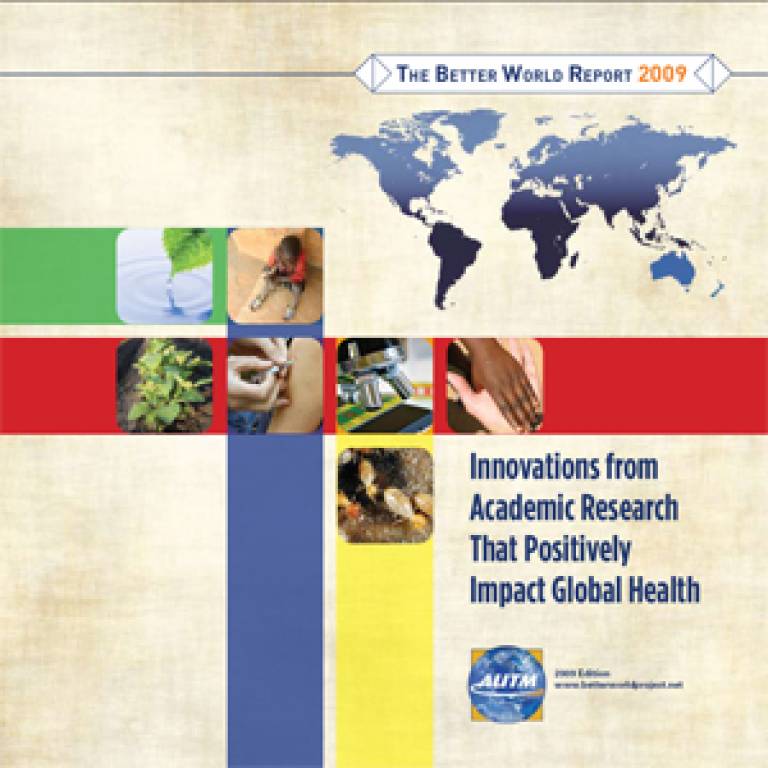UCL research showcased in 'Better World Report'
14 May 2009
Links:
 betterworldproject.org/" target="_self">2009 Better World Report
betterworldproject.org/" target="_self">2009 Better World Report
Research from UCL features in the '2009 Better World Report', which showcases examples of the most powerful research and technology to come out of universities that have had a positive impact on global health.
UCL's spin-out Eurotempest Ltd and Tropical Storm Risk (TSR) were selected because of their groundbreaking capabilities in the prediction of severe weather conditions.
The ventures were developed from work by Professor Mark Saunders and his fellow climate researchers at the university's Mullard Space Science Laboratory (MSSL).
Using sophisticated computer models, the team can assess the strength and pathway of storms, when they will arrive at geographical locations and how much damage they could cause. TSR tracks hurricanes, typhoons and cyclones worldwide and offers unrivalled accuracy in mapping their impacts. Eurotempest focuses on the destructive wind storms that often sweep across the European continent.
"We are delighted that our innovative storm warning and storm impact products are of benefit to global health and have saved many lives," said Professor Saunders.
UCL is one of only two UK universities to feature in the report. Its inclusion reinforces the university's commitment to carrying out research that has an impact on the health of communities around the world.
The Better World Report is published by the Association of University Technology Managers, with a view to promoting public understanding of how academic research and technology transfer have changed our way of life and made the world a better place.
UCL context
The UCL Mullard Space Science Laboratory is the UK's largest university-based space science research group. It delivers a cutting-edge science programme, underpinned by a capability in space science instrumentation, systems engineering and project management.
The Aon Benfield UCL Hazard Research Centre is Europe's leading multidisciplinary academic hazard research centre. It comprises three groups: geological hazards, meteorological hazards & seasonal forecasting, and disaster studies & management.
UCL Business plc is the access point to the wealth of innovation and intellectual property emanating from UCL, and offers a number of services to assist the technology development process, from consultancy through to collaborative research, IP licensing and the creation of spinout companies and joint ventures to maximise the commercial potential of new discoveries, materials and processes.
UCL Business is part of UCL's enterprise agenda. The university is committed to sharing and developing our finest research in partnership with industry, so that we can bring the benefits of our research to as many people as possible. Our academics provide expert consultancy and training to businesses, large and small, and we in turn aim to foster entrepreneurial awareness among our staff through a dedicated department.
Related stories
UCL star-gazing camera set to peer into deep space
Climate change: The biggest global-health threat of the 21st century
UCL podcast: What businesses can learn from Ovid
 Close
Close

